The healthcare industry has long struggled with providing efficient and effective customer service through chatbots in healthcare. Patients are often faced with complex medical bills and confusing healthcare jargon, leaving them frustrated and overwhelmed. However, with the evolution of chatbots, healthcare organizations are starting to offer a more personalized and streamlined experience for their patients.
According to users, the current generative artificial intelligence (AI) technology is not yet reliable for safe patient treatment. However, a recent survey of healthcare practices indicates that 77% of users believe that chatbots will be capable of treating patients within the next decade.
In this article, we will explore the history and advancements of chatbots in healthcare and their potential to revolutionize the industry.
Exploring the Applications of Chatbots in Healthcare Industry
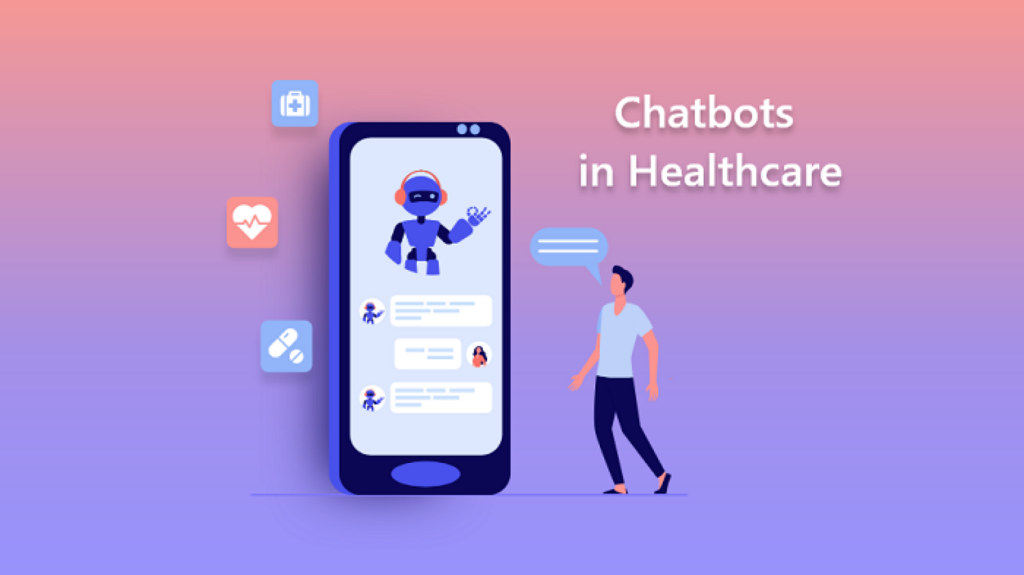
Chatbots have been used in healthcare settings for several years, primarily in customer service roles. They were initially used to provide simple automated responses to common patient questions, such as office hours or medication refill requests. Over time, chatbots in healthcare became more sophisticated, incorporating machine learning and artificial intelligence (AI) to provide more personalized responses.
As healthcare becomes increasingly complex, patients have more and more questions about their care, from understanding medical bills to managing chronic conditions. The need for a more sophisticated tool to handle these queries led to the evolution of chatbots from simple automated responders to query tools that can handle complex patient inquiries.
The Evolution of Chatbots
In the early stages of their implementation, chatbots in healthcare were primarily used as basic customer service tools, offering pre-programmed responses to common queries. These rudimentary chatbots were designed to handle simple tasks such as scheduling doctor’s appointments, providing general health information, medical history or reminding patients about medication schedules.
While they improved efficiency by freeing up human resources from mundane tasks, they were quite limited in their capacity to understand and respond to complex patient inquiries. Their functionality revolved around a set of predefined rules, and they lacked the ability to learn from past interactions or provide personalized responses.
The advancements in chatbot technology have been remarkable. Chatbots are now capable of understanding natural language processing, which allows users to interact with them in a more organic manner. Additionally, chatbots can now access electronic health records and other patient data to provide more personalized responses to patient queries.
With these advancements, chatbots in healthcare are shifting from simple customer service tools to sophisticated query tools. We expect that they will be able to assist patients in managing their health, from scheduling appointments to answering complex medical questions. This shift has the potential to revolutionize healthcare, as patients are now able to access personalized care at any time without the need for lengthy phone calls or office visits.
Using Chatbots for Complex Appointment Scheduling
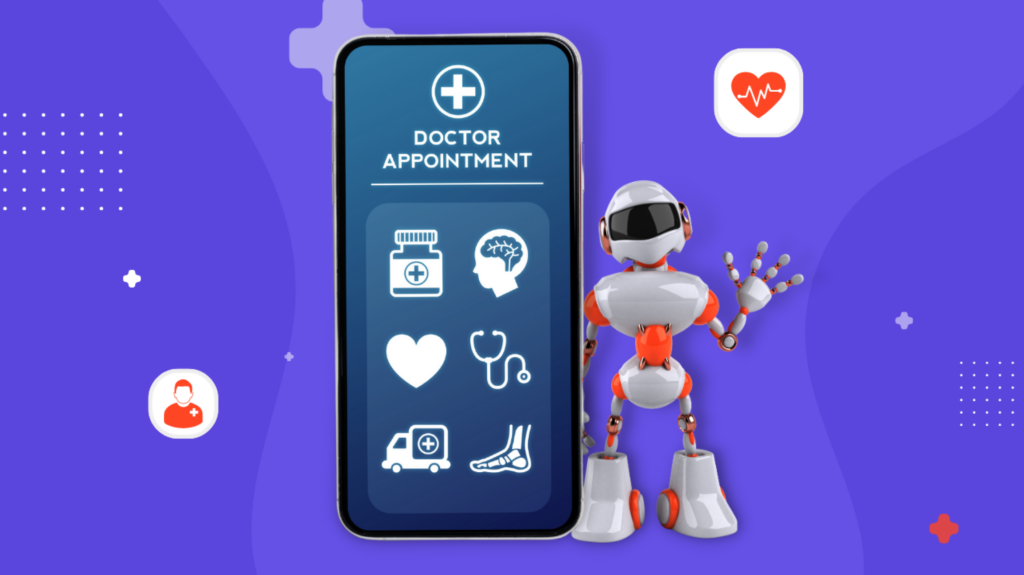
Chat and artificial intelligence (AI) are transforming appointment scheduling in healthcare, making it simpler and more efficient. Chatbots in healthcare can easily detect conflicts in calendars or insurance coverage by analyzing patient data, ensuring appointments are organized correctly and patients can book appointments directly through chatbots, eliminating need in many cases for phone calls or paperwork. This streamlined process results in quicker and more convenient access to care, leading to increased patient satisfaction. AI-powered chatbots handle complex scheduling tasks with remarkable efficacy, analyzing patient requests and scheduling appointments accordingly.
They can coordinate multiple specialists’ calendars and optimize the patient’s time. Chatbots in healthcare also provide personalized reminders and address common inquiries, enhancing the patient experience and reducing administrative burden. These capabilities make AI chatbots an indispensable tool for modern healthcare management, revolutionizing appointment scheduling.
Chatbots in Healthcare Understanding Medical Bills
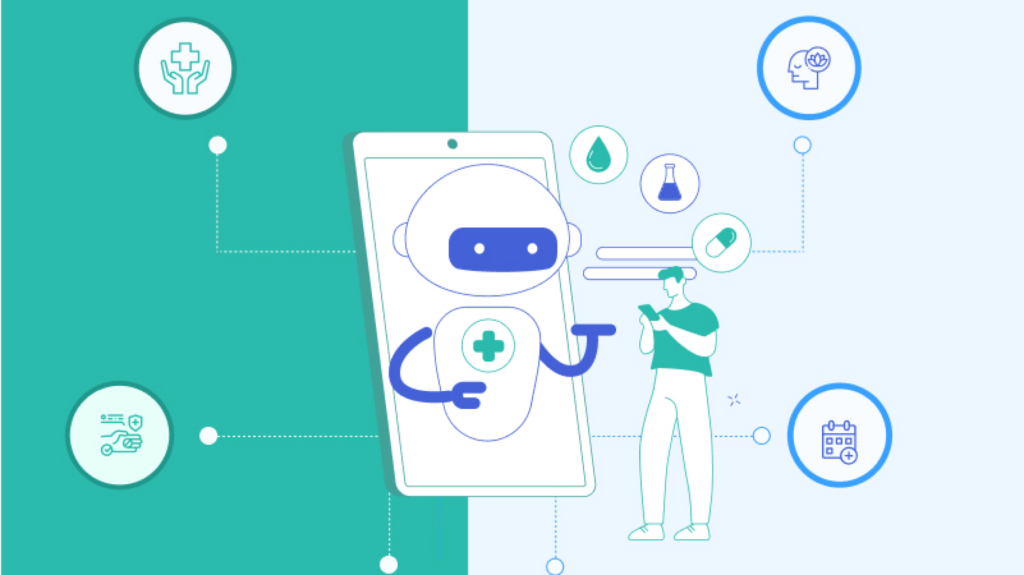
Medical billing can be one of healthcare’s most confusing and overwhelming aspects. Patients are often hit with unexpected costs and unclear billing statements. Chatbots have the potential to transform the way patients understand their medical bills. AI and chatbots can help patients understand their bills by providing detailed explanations of charges, identifying potential errors, and offering guidance on payment options.
Chatbots Managing Chronic Conditions
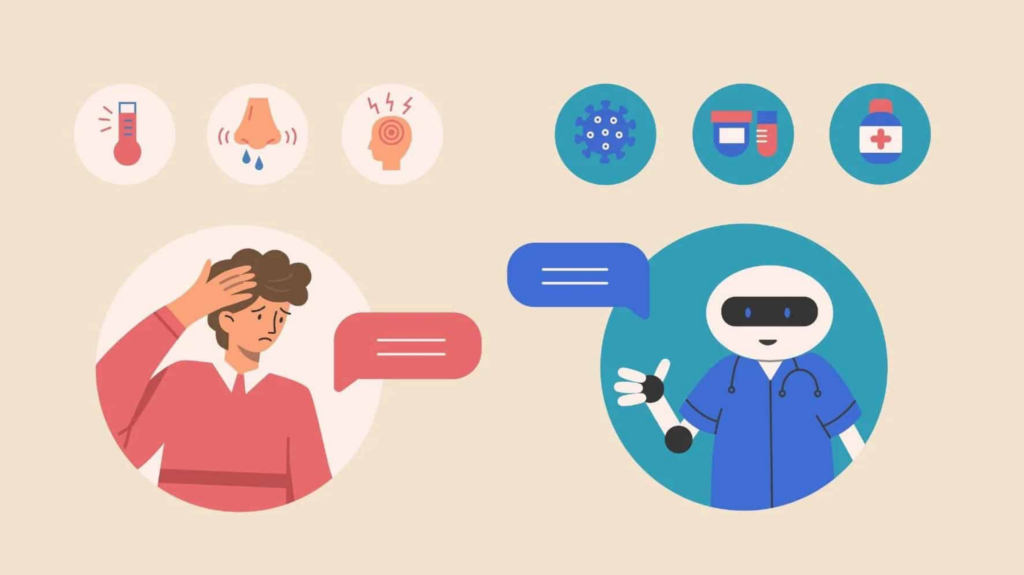
Chatbots can also be used to help people better manage their chronic conditions. By leveraging AI and natural language processing, chatbots can provide personalized advice, prescription refilling, and reminders to patients that are tailored to their specific needs. Chatbots in healthcare can collect patients’ age, location, and other medical information when providing guidance on how to handle a particular condition or issue. They can even track health data over time, offering increasingly more accurate insights and recommendations based on a patient’s healthcare journey.
The Capability of Chatbots to Take Action Based on Queries
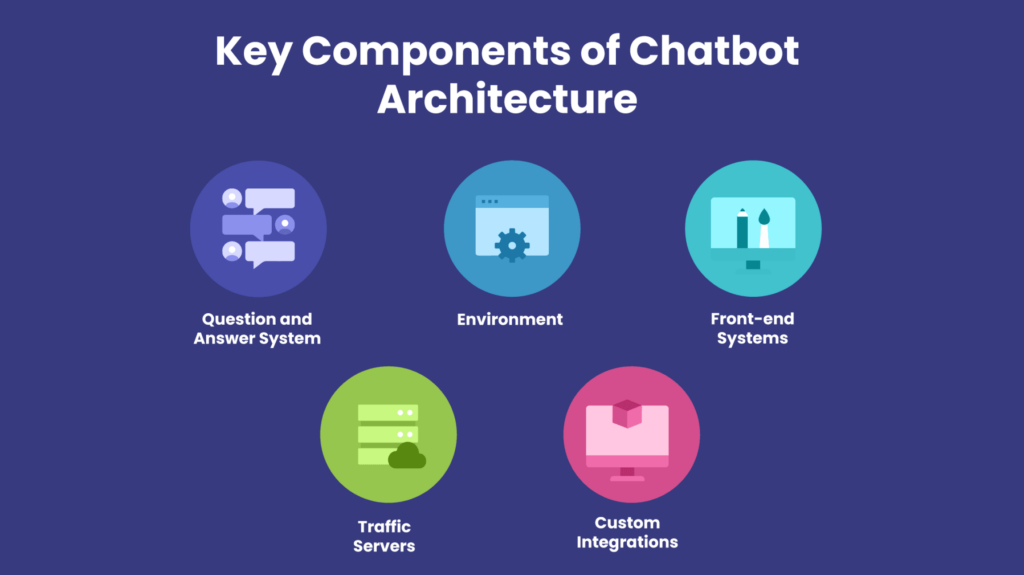
Chatbots are not just limited to providing information. They can also take action based on patient queries and provide guidance on the next steps. For example, a chatbot may remind a patient to take their medication or schedule an appointment with their healthcare provider. While this capability offers benefits, such as improved patient outcomes and reduced healthcare costs, there are also potential drawbacks, such as privacy concerns and misinterpretation of patient queries.
In healthcare technology, in particular, the handling of sensitive medical and financial data by AI tools necessitates stringent data protection measures. Furthermore, the algorithms used by these chatbots must be highly accurate to ensure they interpret queries correctly and perform the appropriate actions if patients and clinicians are expected to rely on the outcomes.
Modern chatbots in healthcare have evolved significantly beyond their initial roles. They are not just tools for providing answers to common questions but have now become proactive interfaces capable of performing actions based on patient queries. For instance, a patient may inquire about their outstanding medical bill. The AI-driven chatbot, equipped with the necessary permissions and data access, can retrieve personalized billing information and offer to facilitate a payment transaction right within the chat interface.
The Future of Chatbots in Healthcare Settings

The potential future of chatbots in healthcare is limitless. Improved AI and natural language processing have the potential to revolutionize the industry, allowing patients to access personalized care anytime, anywhere.
And, as artificial intelligence continues to improve, chatbots will be able to handle more complex tasks than ever before. This includes a wider array of data analysis and automated processes that can reduce manual labor associated with healthcare administration and improved communication between clinicians and patients. Areas where improved AI can be beneficial include remote patient monitoring, medication adherence, and chronic disease management.
At the same time, many chatbot use cases also raise some ethical considerations. With a greater reliance on technology for patient care, there is potential for errors or misunderstandings that could lead to misdiagnoses or incorrect treatments. Furthermore, AI sources must be carefully monitored to ensure they are not subject to bias or manipulation.
In conclusion, the evolution of chatbots into sophisticated query tools has the potential to transform the healthcare industry. Chatbots in healthcare are no longer limited to simple customer service roles. They are now becoming capable of providing personalized care and assistance to patients, handling even the most complex inquiries. As chatbots continue to evolve, healthcare professionals and technology companies should consider the ethical implications of AI and ensure that patient privacy remains a top priority. Ultimately, chatbots have the potential to revolutionize healthcare, providing patients with the personalized healthcare services they deserve.
Looking To Capitalize on the Potential of AI-Based Patient Communication Solutions?
Our team of experienced developers and consultants have the skills and knowledge necessary to develop tailored applications that match your needs. We understand the ethical implications of using AI for patient communication and can help you navigate those issues with our expertise in data privacy compliance – as well as providing expert guidance on navigating the UI involved in engaging patients in new modalities.
Additionally, we offer consulting services to explore how best to use AI technology in your own patient communication software applications.

Consider KMS Healthcare as your go-to resource for the development and consulting expertise you need to explore how you can use AI to improve patient communication software applications.